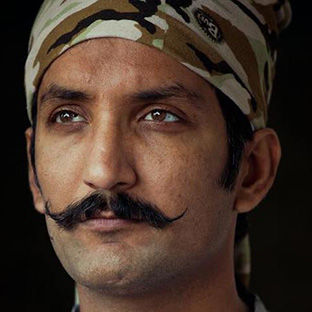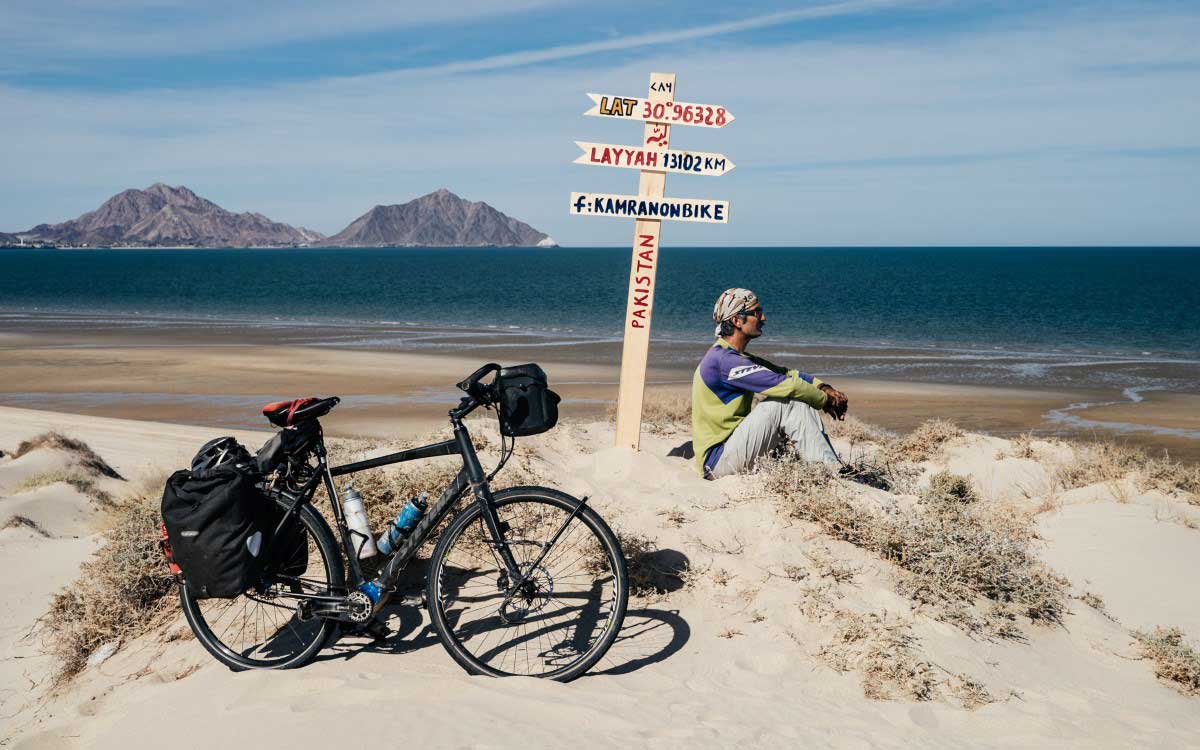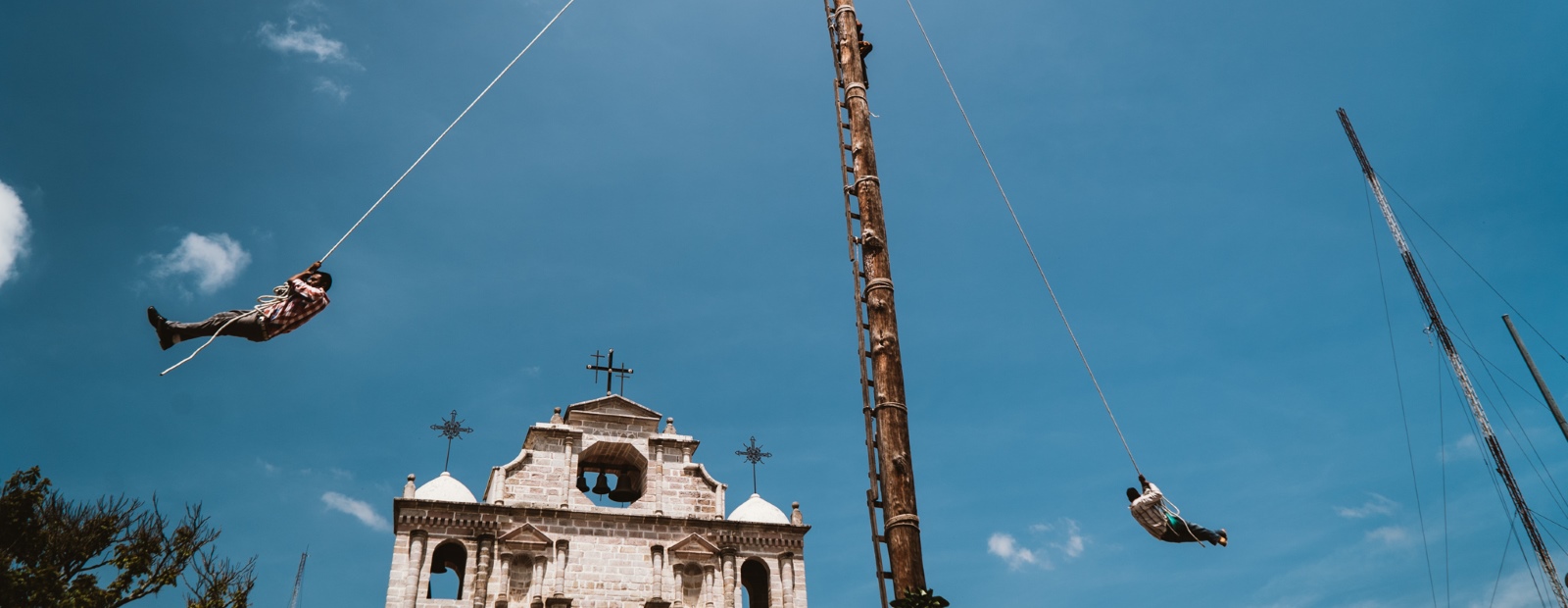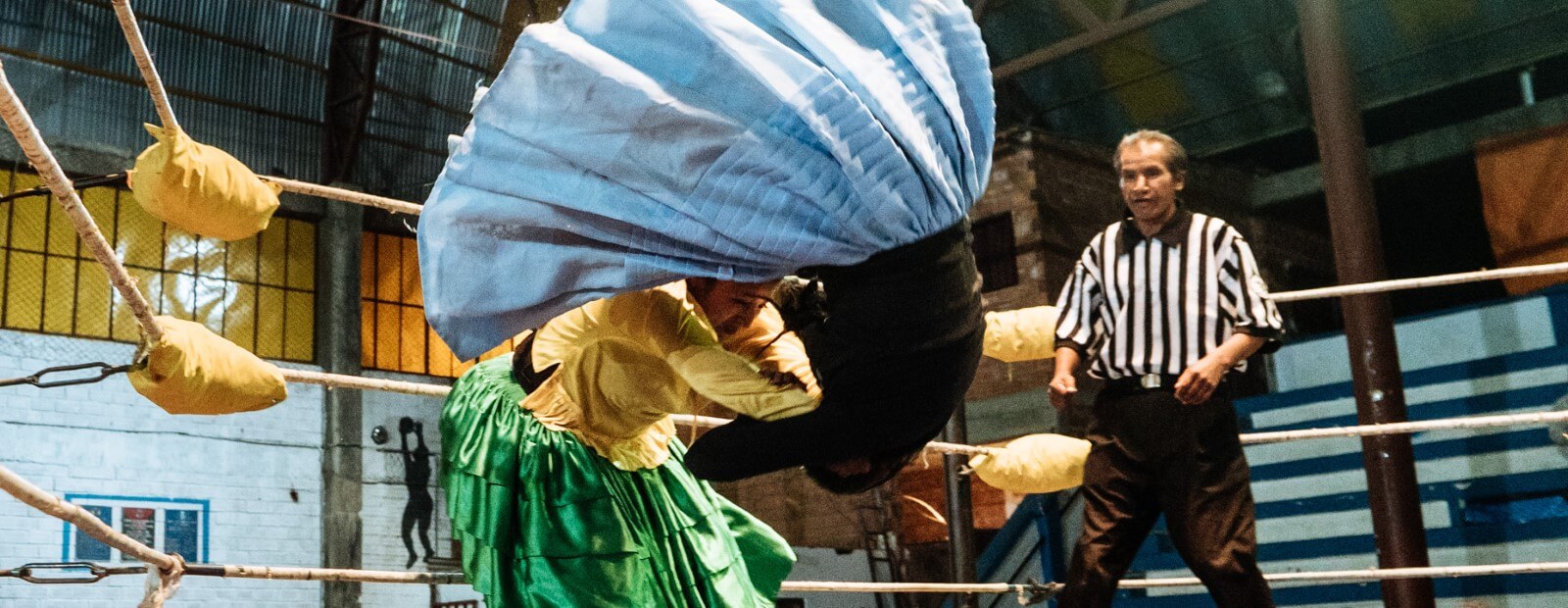
By Kamran Ali
Photographer22 Feb 2018 - 6 Minute Read
If you draw a horizontal line on the world map at the 30.963280° latitude, somewhere this line is going to cross Layyah City in Pakistan.
Halfway around the world, about 9km south of San Felipe in Baja California, Mexico, I push my bicycle through the desert. After half an hour of walking in the soft sand, I take a final glance at my GPS device, which tells me: This is the place.
My eyes scan the Sea of Cortez out to the horizon. Although I cannot see my home in Layyah from here, this location is in perfect geographical alignment with it.
I dig a hole in the ground, place a signpost in it, and fill it with sand.
From where I sit, Layyah is some 13,102km away. How many seas, mountains, deserts, cities, rivers, and forests separate us? Yet if I close my eyes for a second, I find myself at the doorstep of my home, with my mom waiting outside. But I know that there is no mom, and our house, which dad named Pakistani House, is almost abandoned, too. No one truly awaits me in Layyah, except the graves of my parents.
Whenever I am in Layyah, I hate the place. What is in this city, except dust, narrow streets, chaotic traffic, and the polluted air from the Layyah Sugar Mills? There is nothing to see. There is also no entertainment. During the summer, in every street corner, men sit outside without shirts and gossip about the lives of others. And then there is the unbearable heat! The only two good things I can remember about Layyah right now are delicious mangoes and watermelons which vendors proudly call Layyah day laal (darlings of Layyah).
I often wonder what led my childhood self, who once used to roll a tire in the dusty streets of Layyah, to cycle in a land so far away? I was the only kid in the family who went abroad to study. My family had great hopes for me. They thought their days were going to change forever once I started working abroad, but that day never came.
When I first told my elder brother that I was going to travel from Germany to Pakistan by bicycle, he was utterly disappointed and said, “People go abroad, become rich, and travel in chartered planes or helicopters, and look at you – you are coming by bicycle! What a shame!”
He wasn’t too wrong. A bicycle is perceived as a poor man’s transport back home, and I did fail my family. While I sit literally on the other side of the planet, I think about my brother, who sold his new motorbike for my university fee and who still repairs old tires in Layyah. Was it selfish of me to choose this way of life?

Gentle waves of the sea go back and forth, and I cannot help but wonder – what was the exact point when I became lost in life? Dad’s untimely death, or mom’s, or even before? So many people live on this latitude line. Who else might be thinking about the same question at this moment?
All these thoughts, and yet I remember Layyah. Why? Maybe because our origin is an essential part of our identity. It makes us who we are. If we don’t know where we came from, we wouldn’t have an idea of where we're going. Astronomers look for clues for the origin of cosmos in the sky. For us cyclists, although we are exploring other places, essentially it's a quest within. We all want to know what’s out there, and how we fit into the grand scheme of the universe.
Dad always used to say, “Son, whatever you become, wherever you go, don’t forget your roots!” This signpost is a testimony to my dad that I haven’t forgotten his lessons.
After placing the signpost in a lonely spot in the desert, I stare at it for a long time. I feel a certain connection to my old home through its wood and letters.
Eventually, I walk back to the main road, but after every few steps, I stop and look back to see if the signpost is still there. "Maybe I should have dug deeper before placing it in the ground?" I ask myself.
The last time I saw it, the sign was still standing. Possibly, the next minute, it collapsed due to the wind. But whether it lasts or not, a part of me will always be there.
Discover similar stories in
transformation
Photographer
Kamran Ali is a cyclist and photographer, born and raised in Pakistan and currently on a 3-year, 30,000km bicycle journey from Argentina to Alaska.




2 Comments
Beautiful story. Safe travels, Kamran!
from the emotions of a deep heart. thanks and travel well, dona